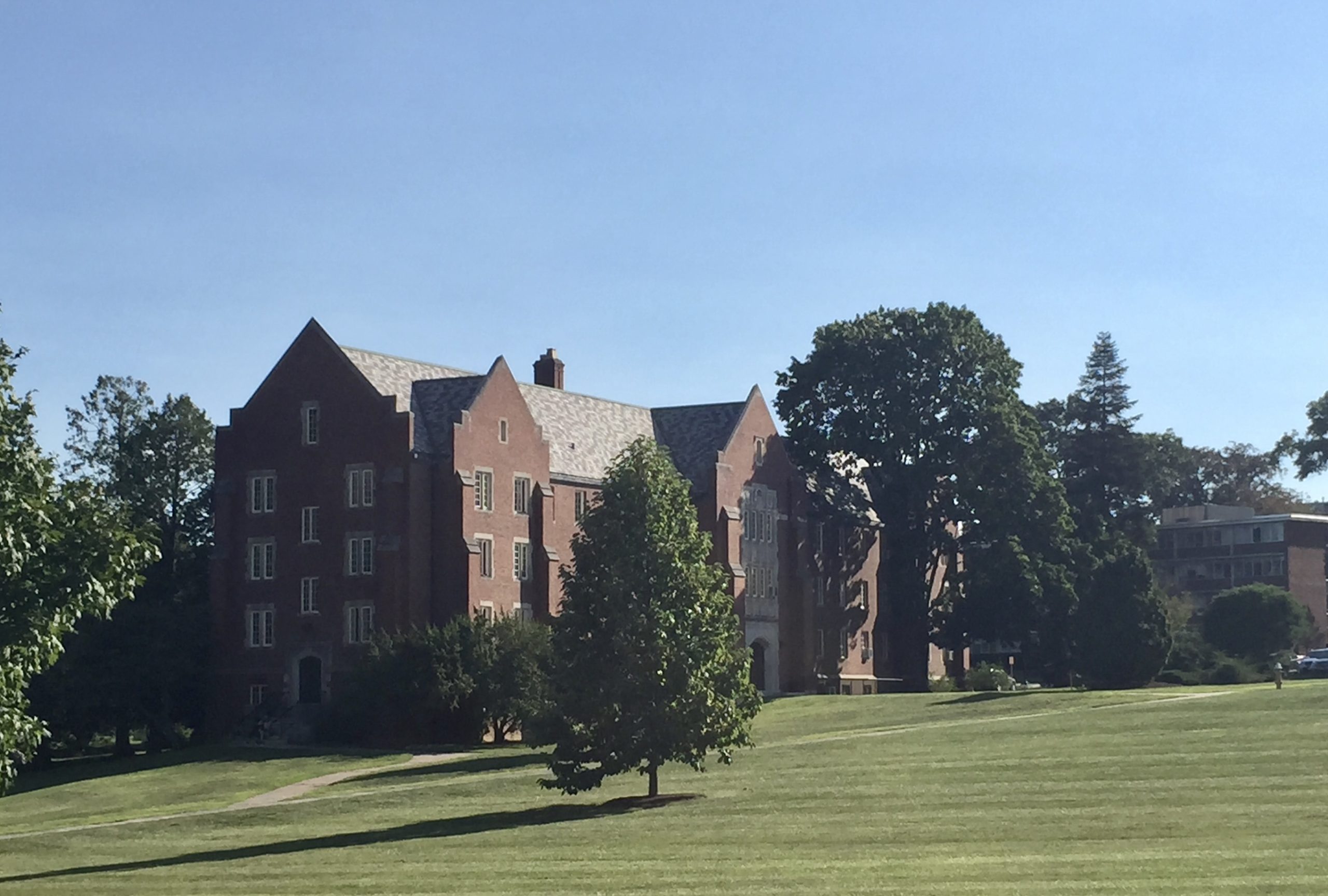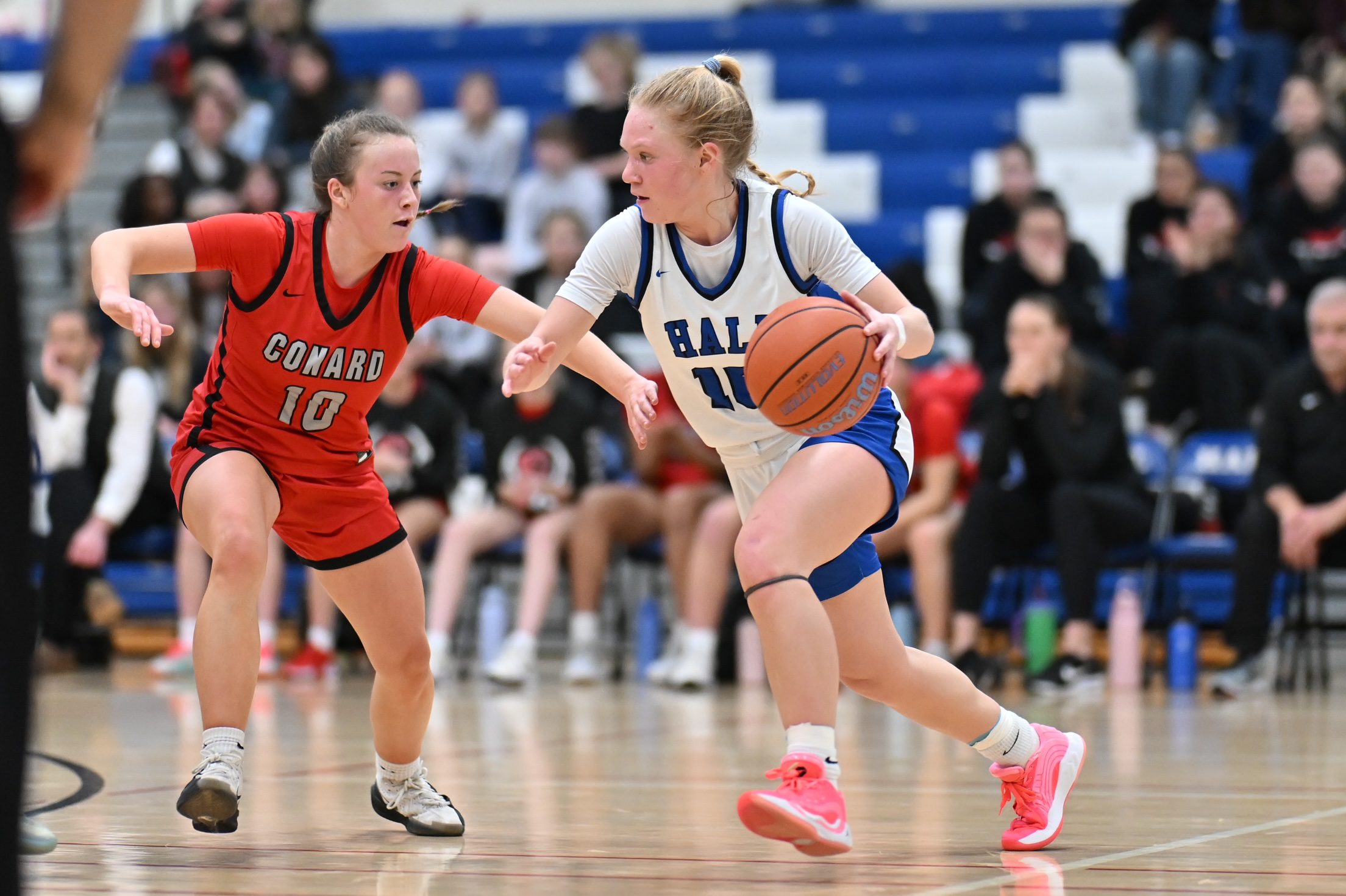College Bound: The Benefits of a Liberal Arts Education, ROI, and AI

Audio By Carbonatix

Photo credit: Ronni Newton (we-ha.com file photo)
We-Ha.com will be publishing a series of essays/blogs/reflections on the issue of going to college – primarily a set of thoughts and musings, along with some practical advice, intended to support students and parents as they embark on this journey. While many of our readers are experts in this topic, many others are less knowledgeable and have little outside support. We hope this is helpful to all readers as they go through the various stages of getting into and getting something out of college.

Adrienne Leinwand Maslin. Courtesy photo
By Adrienne Leinwand Maslin
The Benefits of a Liberal Arts Education, Return on Investment, and a Little Artificial Intelligence for Good Measure
As you can see by the title, this month’s column is a bit of a mash-up. Undecided about what to write, the only logical decision was to write about all three. So let’s start with the liberal arts. Throughout my years in higher education students have asked me why they have to take a music course. Or an art course. Or history. “I’m majoring in business administration! Why do I have to take poetry?” Let me share my thoughts.
A liberal arts college education offers an exciting and comprehensive educational experience that provides many advantages to its students. This type of college focuses on providing a well-rounded education not just in academic subject matter, but also in areas such as the humanities, social sciences, and arts. In doing so, a liberal arts college education helps to cultivate students’ critical thinking skills, communication skills, and overall ability to apply knowledge to a variety of life’s problems.
One of the most significant benefits of a liberal arts college education is its ability to prepare students for a variety of professional paths. Rather than focusing solely on a particular area of study, a liberal arts college education provides students with the knowledge necessary to explore a range of different career options. This includes both traditional and more creative fields, providing students with the opportunity to discover and pursue their true interests and passions. A liberal arts college education also teaches students how to work and communicate with different people, which is essential in today’s globalized workforce.
In addition to teaching essential skills needed to be successful in the professional world, a liberal arts college education provides students with numerous other benefits. Students have the opportunity to take courses focusing on the humanities, history, social sciences, and the arts, providing them with the opportunity to gain a deeper understanding of different cultures and ideologies. These classes also help students develop the ability to think critically and discern complex problems, experiences which are invaluable in many different career paths.
Finally, a liberal arts college education allows students to cultivate their own interests and passions, while also learning crucial skills in teamwork, communication, and problem solving. By taking courses in many different areas, students are encouraged to explore careers, ideas, and concepts that may not have been available at a more traditional college. This provides students with the opportunity to establish an educational framework of their own, creating a more well-rounded and unique learning experience.
In summary, a liberal arts college education provides many benefits to its students, from preparing them for a variety of professional paths, to giving them the chance to explore unique subjects and interests. Additionally, taking courses in the humanities, social sciences, and the arts provides students with the opportunity to hone their critical thinking and communication skills, two qualities essential to being successful in today’s competitive job market. Whether you are considering a college education or are already enrolled in college, a liberal arts college education is one of the best ways to pursue higher learning.
Now for the disclaimer. Except for the first paragraph, everything above was created with Write For Me – Writing Made Easier with Artificial Intelligence! (https://apps.apple.com/us/app/write-for-me-gpt-ai-assistant/id1659653180)
This is the free version; if I had signed on to one of the paid plans I expect it would have produced a response to my inquiry – “What are the benefits of a liberal arts education?” – that was a bit more in depth. It’s clearly well-written in terms of grammar and spelling although is a bit stiff for my tastes. And I would never conclude an essay by actually writing the words: “In summary.” How leery instructors should be about artificial intelligence is an open question although I believe there are many ways an instructor can put it to educational use. But, I was interested to see how it works and how it would respond to a query and now I’ve learned a little something about it. The essay does hit many of the main points but for the purposes of this column I’d like to delve a bit deeper.
What do we mean when we talk about the liberal arts? Typically, the broad fields of the visual and performing arts (art, music, theater, dance), the humanities (religion, philosophy, English [including composition, creative writing, and literature], history, foreign languages, art history), the social sciences (political science, economics, psychology, anthropology, sociology), and math and the natural sciences (biology, chemistry, physics, environmental science, geology) comprise a liberal arts education. Clearly many of these courses are also critical to career-oriented majors such as business, nursing, and specific STEM fields.
All students who earn an undergraduate degree take some courses in the liberal arts and sciences to expose them to a broad range of knowledge, ideas, ways of thinking, and research methodologies. Many students choose to major in a liberal arts and sciences discipline while others prefer to major in a field that is more career-oriented such as business, nursing, teacher education, or many others. Still, regardless of major, all students are required to experience the liberal arts and sciences to some extent.
Although written in a style that is unlike my own, the AI response hits most of the important elements of the benefit of the liberal arts. These include:
- Learning to think critically about complex issues and engage in problem-solving,
- Learning to communicate with others including one-on-one, small group situations, and public speaking,
- Learning to work as a member of a team,
- Learning about other cultures and applying this knowledge to one’s daily activities,
- Learning to understand other academic disciplines and, perhaps, find one or more that are of great interest and that being joy,
- Understanding how one conducts research and learns in different academic disciplines.
About two years ago, the American Association of Colleges and Universities (AAC&U), a highly regarded higher education policy organization focused on liberal arts education, published a paper entitled How College Contributes to Workforce Success: Employers Views on What Matters Most (https://dgmg81phhvh63.cloudfront.net/content/user-photos/Research/PDFs/AACUEmployerReport2021.pdf). The paper is based on a 2020 survey of employers. Nearly three-quarters were private companies although the survey respondents also included publicly traded companies, government agencies, and non-profits. Survey respondents included 496 executives and hiring managers across a broad range of industries. Here are some of the report’s key takeaways:
- Employers have confidence in higher education and value the college degree.
- A liberal education provides the knowledge and skills employers view as important for career success.
- Personal aptitudes and mindsets also play an important role in career success.
- Completion of active and applied learning experiences gives job applicants a clear (Author note: these include internships, capstone projects, undergraduate research, participation in learning communities, and others.)
- Both breadth and depth of learning are needed for long-term career success.
- Employers see room for improvement in the preparation of college graduates for work.
- Younger employers (under 40) place a significantly higher value on civic-related learning outcomes and experiences than older employers (50 and above) do.
- Nearly nine out of ten employers think that getting a college degree is either definitely or probably worth it.
The chart below, from the AAC&U report, illustrates that the skills students acquire by studying the liberal arts are seen as “very important” by many employers. Equally important, it provides a comprehensive list of those skills. The essential thing to note about the competencies in the chart below is that these are skills that are important to nearly any job. In 2013, Peter Cappelli, George W. Taylor Professor, Professor of Managment, and Director of the Center for Human Resources at The Wharton School of the University of Pennsylvania commented on the merits and cost benefits (i.e. return on investment) of focusing on a career-related curriculum in college.
Here is what he said: “It all makes sense. Except for one thing: It probably won’t work. The trouble is that nobody can predict where the jobs will be – not the employers, not the schools, not the government officials who are making such loud calls for vocational training. The economy is simply too fickle to guess way ahead of time, and any number of other changes could roil things as well. Choosing the wrong path could make things worse, not better.” (Why Focusing Too Narrowly in College Could Backfire. Wall St. Journal, November 15, 2013.)
When we talk about the return on investment of a college education we need to consider both the short term and the long term. Georgetown University’s Center on Education and the Workforce has ranked 4500 colleges for return on investment (https://cewgeorgetown.wpenginepowered.com/wp-content/uploads/College_ROI.pdf). The links in the bulleted points below will take you to the report which additionally allows readers to review any individual institution on the list they wish. The main points generated by the research are these:
- A First Try at ROI: Ranking 4,500 Colleges finds that bachelor’s degrees from private colleges, on average, have higher ROI than degrees from public colleges 40 years after enrollment. Community colleges and many certificate programs have the highest returns in the short term, 10 years after enrollment, though returns from bachelor’s degrees eventually overtake those of most two-year credentials.
- ROI of Liberal Arts Colleges: Value Adds Up Over Time finds that the median ROI of liberal arts colleges is nearly $200,000 higher than the median for all colleges. Further, the 40-year median ROI of liberal arts institutions ($918,000) is close to those of four-year engineering and technology-related schools ($917,000), and four-year business and management schools ($913,000).
Before you bemoan the fact that the institution you attended does not rank in the top 20 for ROI on the Georgetown list, or the top 120, or that the college or university your child has their heart set on is not in the top one percent, or that the college you can afford is not in the top 50%, let me make a couple of points.
One, many students have a need to consider the short-term return on investment rather than the long-term. Many students have to support themselves and a family, some of them need to pay off debt, some have goals and ambitions that are better served by attending a college that will give them the confidence of knowing their skills will allow them to obtain a job immediately. This is no small matter; we do not live in a one-size-fits-all world. And many students who look to a short-term ROI also understand that returning to school is not closed off to them. It is never too late to benefit from college attendance and continuing one’s education at a different type of institution might only be possible if there is a bit of money in the bank.
Two, attending a college that is not right for you is not a wise decision. If the institution is too big, too small, too urban, too rural, too wrapped up in athletics, too religiously oriented, has too many vegans, has too much this or too little that you are bound to become apathetic and do poorly in school. That helps no one. So, you still want to attend a college that fits your needs, not anyone else’s.
Three, graduate or professional school is another game changer. For those who will continue their education in graduate school, the overall long-term return on investment equation will change. Obviously, graduate or professional school is another big investment but, over time, can be a ticket to greater earnings potential.
Last, you need to consider what a “successful life” looks like to you. The concept of ROI typically refers to the financial return on a financial investment. But, not everything has a price tag on it. We all know there are some things that money just can’t buy. Meeting the love of your life, opportunity for travel, finding yourself, finding community, helping others. As the commercial says, “priceless!”
Adrienne Leinwand Maslin recently retired from a 45-year career in higher education administration. She has worked at public and private institutions, urban and rural, large and small, and two-year and four-year, and is Dean Emerita at Middlesex Community College. She has held positions in admissions, affirmative action, president’s office, human resources, academic affairs, and student affairs. Maslin has a BA from the University of Vermont, an MEd from Boston University, and a PhD from the University of Oregon. She is presently creating a TV/web-based series on life skills and social issues for 9-12 year olds believing that the more familiar youngsters are with important social issues the easier their transition to college and adulthood will be. Information about this series as well as contact information can be found at www.shesroxanne.com.
Like what you see here? Click here to subscribe to We-Ha’s newsletter so you’ll always be in the know about what’s happening in West Hartford! Click the blue button below to become a supporter of We-Ha.com and our efforts to continue producing quality journalism.



